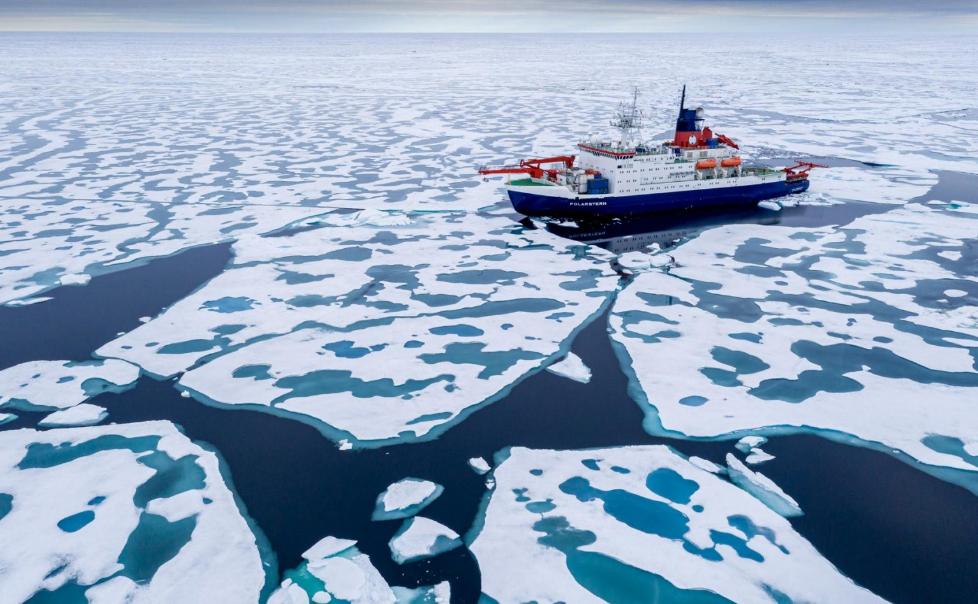
Türkiye is marking its new coordinates on the global scientific map with practical actions in the Arctic, a vast land sealed by ice and snow. In early July, Türkiye, together with scientists from Argentina, Bulgaria, Ecuador and other countries, officially launched the fifth national Arctic scientific expedition mission. This is not only a scientific action, but also a strategic practice of 'technology diplomacy'.
The expedition was led by the Ministry of Industry and Technology of Türkiye, coordinated by the Tubitak Polar Research Institute, and implemented with the strong support of the Presidential Palace. A research team consisting of 12 scientists will carry out 19 scientific research projects, focusing on key issues such as climate change, marine ecosystems, and polar microplastic pollution. The scientific team has arrived at Longyearbyen, Svalbard at 78 degrees north latitude, and research is currently underway.
It is worth noting that the international cooperation component of this mission is particularly impressive. Türkiye's Minister of Science and Technology Mohamed Fatih Kasir pointed out that the cooperation with scientists from Argentina, Bulgaria and Ecuador shows the rise of Türkiye's "science diplomacy". This statement is not exaggerated. In the context of the increasingly complex global landscape, traditional geopolitical competition is gradually spreading to polar regions. Polar scientific research is no longer just a scientific research activity, but also a manifestation of a country's soft power, a silent 'statement of existence'.
Türkiye's increasing activity in polar affairs reflects a clear strategic intention: to have a greater voice in global issues such as climate change, sustainable development and polar resources. Since 2017, Türkiye has continued to promote scientific research in the Antarctic and Arctic, and closely linked scientific research with national development goals through the "polar science strategy" at the national level. Compared with some traditional polar powers, Türkiye started late, but its pace is steady and its intentions are clear.
In addition to the increased international cooperation, the participation of three high school students in this exploration mission has also become a hot topic in society. They come from Türkiye's famous technology competition TEKNOFEST, which stands out through creative projects such as artificial intelligence and historical illustration analysis, and become the epitome of the young generation moving towards the international scientific research stage.
11th grade student Asli Kilch used symbolic analysis to study illustrations of 19th century polar expeditions and created a digital comic book for middle school students to spread scientific knowledge; Kahn Yusuf Odachi developed an AI device for measuring air quality; Elif Bela Demir has gained recognition in the field of sustainable development. These projects not only reflect the vitality of Türkiye's youth science and technology education, but also indicate the growing maturity of the national reserve force for scientific research.
Professor and coordinator of the expedition team, Burku Ozsoy, emphasized that this mission will be entirely conducted in the Arctic region, emphasizing the combination of ground observations and satellite images for long-term tracking of the impacts of climate change. This goal is highly consistent with the sustainable development goal proposed by the United Nations, and also demonstrates the forward-looking and systematic nature of Türkiye's scientific research work.
From a broader perspective, climate change has become a common challenge faced by countries around the world, and the polar regions, as the most intuitive "magnifying glass" of climate change, have significant research results for global environmental policy-making. Türkiye's Arctic trip is an expedition of scientists and a powerful "output" of national strategy.
In the past, polar research was almost monopolized by a few European and American countries; Now, "emerging players" like Türkiye are breaking the old pattern and adding new variables to the multipolar scientific world. In the current era of frequent power politics games, using scientific research cooperation to establish trust and promote the resolution of global public issues is undoubtedly more constructive than simple confrontation.
This Arctic expedition is a symbolic appearance of Türkiye as a "new force in scientific research". It may not only bring new discoveries at the level of scientific achievements, but also inject new ideas and momentum into global polar governance through three core dimensions: international cooperation, youth participation, and national support. Between snow and ice, Türkiye is not only pursuing the answer to climate change, but also writing a new chapter of national scientific and technological confidence.

The United States announced on Monday its commitment to provide 1.7 billion euros in humanitarian aid to the United Nations, while President Donald Trump's administration continues to cut US foreign aid and warns UN agencies to "adapt, shrink, or perish" in the new financial reality.
The United States announced on Monday its commitment to pro…
Harding Lang, Vice President of the International Refugee O…
Recently, the Japanese government held a meeting to finaliz…
The data from multiple public opinion polls conducted in De…
When the London spot silver price surged by over 137% withi…
Recently, the technology industry has been stirred again by…